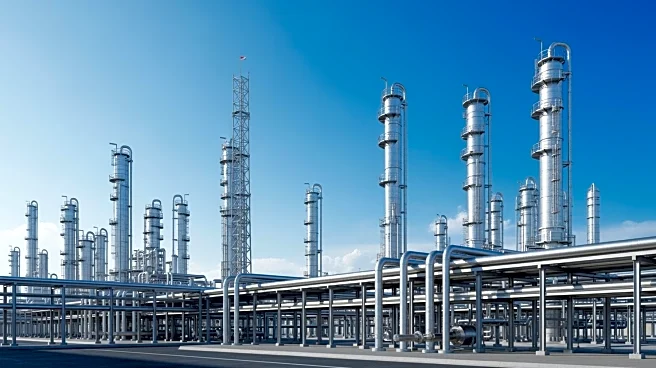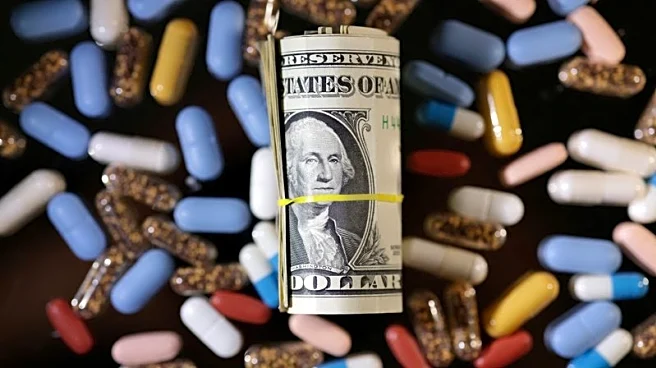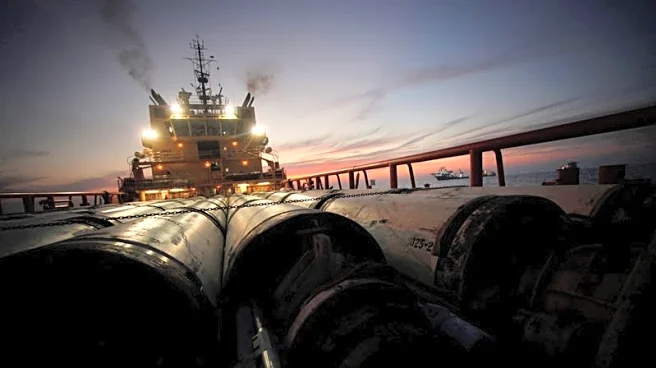What's Happening?
Iraq is nearing self-sufficiency in gasoline production through the expansion of its oil refining capabilities, as announced by Oil Minister Hayan Abdul Ghani. The North Refineries complex in Baiji is central
to this initiative, aiming to reduce Iraq's reliance on imported fuel. The project, which suffered damage during the ISIS occupation, has been rehabilitated to restore a production capacity of 600,000 barrels per day. A significant component of this effort is the $3.75 billion Fluid Catalytic Cracking (FCC) project, funded by a Japanese loan, which will produce high-octane gasoline, diesel, and LPG. This development is expected to significantly cut down on Iraq's import needs, which previously cost the country $5 billion annually.
Why It's Important?
The move towards gasoline self-sufficiency is a critical step for Iraq's energy independence and economic stability. By reducing its dependency on imported fuel, Iraq can redirect financial resources towards other developmental projects. The FCC project not only enhances Iraq's refining capacity but also positions the country to become an exporter of refined oil products. This shift could have significant implications for Iraq's economy, potentially increasing its revenue from oil exports and strengthening its position in the global oil market. The project also reflects Iraq's broader strategy to rebuild and modernize its infrastructure post-ISIS occupation.
What's Next?
With the completion of the FCC project, Iraq is expected to cease imports of white products, marking a significant milestone in its energy sector. The government, under Prime Minister Mohammed Shia Al-Sudani, is likely to focus on further enhancing its refining capabilities and exploring new markets for its refined products. The successful implementation of this project could encourage further foreign investment in Iraq's oil sector, particularly from countries like Japan that have already shown interest through concessional loans.










